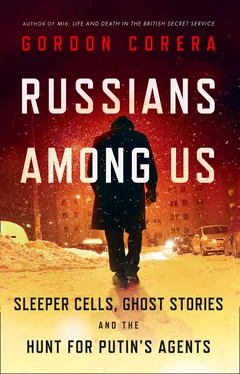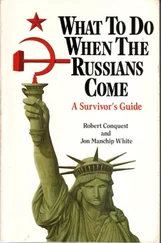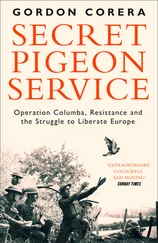In August 1995, the family sold off the business and house and moved to Paris, where Heathfield studied for a master’s degree in international business, living in a small flat near the Eiffel Tower. The same year that they left Canada, Alexander Poteyev, now an SVR officer on the rise, moved to New York. For now, he was a loyal member of the Russian intelligence service despite all the problems his country was enduring.
From afar, Heathfield and Foley could read the news about the turbulence back home in Russia in the 1990s. In their absence, their homeland was changing rapidly. These were difficult years as the country struggled to come to terms with its new status and economic crisis. Everyone was on the make, including the spies. Organized crime began to emerge, settling its scores with violence. A few sharp-eyed Russians bought up shares in privatized industries and accumulated huge wealth. They would become known as oligarchs. In the wild-west capitalism of the 1990s, wealth and power were tightly bound and a gun to the head settled disputes.
In the early evening of June 7, 1994, a remote-controlled bomb detonated as Boris Berezovsky’s Mercedes drove away from his office. The driver was killed but the target survived. A mathematician by training, Berezovsky had started a car dealership but then moved into everything from oil to TV to airlines. A brooding and pugnacious character, he would become the first among equals of the oligarchs and a power in the land, always ready to scheme and plot. A sandy-haired, serious-minded, thirty-one-year-old FSB officer named Alexander Litvinenko was assigned to investigate the assassination attempt. Litvinenko had been recruited into the domestic arm of the KGB in the late 1980s. In 1991, he had been sent to Moscow to work on organized crime. That gave him an education in how the security services had intertwined themselves in the new chaotic, corrupt, freewheeling economy. As well as investigating the Berezovsky assassination attempt, Litvinenko was also ordered to report back on the oligarch to the FSB. Later that year, a brutal conflict broke out in Chechnya and Litvinenko was sent to work on counterterrorism. His and Berezovsky’s paths would cross again a few years later. At one point the chaos was so bad that Boris Yeltsin looked as if he might lose the 1996 election—to, of all things, a communist. Yeltsin arranged a secret deal with the oligarchs. They would throw their money and influence behind his campaign in return for stakes in the vast state-owned natural resource industries and also more influence. Berezovsky organized the deal and became deputy head of the national security council in the wake of the election. As the decade came to an end, his power was reaching its zenith. But it would not last much longer.
ON AUGUST 20, 1999, more than a decade after first surfacing in Canada, Donald Heathfield and Ann Foley finally arrived in their “target” country. Heathfield and Foley had come to America—and would become naturalized American citizens—for a reason. Human intelligence is about people—people who have access to secrets, to power, and to influence. The job of the illegals was to find those people. “Our goal was not to steal a blueprint—as they show it in the films,” explained Elena Vavilova. “Our goal is to find that ‘somebody.’ ” That could be a diplomat or an engineer, a politician or an academic. The illegals’ mission was to subvert America from within, infiltrating deep into its society and in doing so identifying and helping recruit people who could aid Moscow.
Heathfield had landed at one of the best places for his particular line of business. Like any student, when he applied to Harvard, he knew it was a ticket to the big time, a chance to make contacts and open doors, to work his way into the elite circles of American life. The difference from most other students was that this would be for Moscow’s purposes and not just his own self-advancement. He was studying for a master’s in public administration at the Kennedy School of Government. The school was often looked down on by the traditional academic departments, but everyone knew the reason to attend was the connections it offered. The faculty was packed full of former officials and politicians. Former and current CIA officers, senators, and policy wonks all made it their home. And the students who came were ambitious and would make their way into government in the United States or around the world, especially in the midcareer program that Heathfield joined.
Heathfield arrived in late 1999 and gained a reputation as a sociable member of his class of two hundred students. He said he was from Montreal. If pressed about his accent, he would say he was the son of a diplomat and had been to school in the Czech Republic. Heathfield organized a drinking night in which fifty members of the class visited Canadian students to try high-end Scotch. “We called it the Royal Canadian Scotch Stagger,” one later remembered. The night ended at 3 a.m. at Heathfield’s house. The networking opportunities were ample. Among those in his year was Felipe Calderon, who would later become president of Mexico, as well as others who would run for political office in the United States and work with the US Army. Heathfield, fellow students remember, was particularly good at keeping track at what people got up to afterward. Harvard would provide the credentials for his future career but was also the first stage in trying to find that “somebody” who could—wittingly or unwittingly—serve Moscow. “The main task of an agent is constantly climb the social ladder, achieving contacts with more and more prominent society members. Because it is only there that you find really valuable information,” he later said.
On a sunny day in May 2000, Donald Heathfield attended his graduation ceremony. He was all smiles. It was a proud day for all the family. Ann was at his side, looking smart with a pale blue jacket and a pair of sunglasses. At her side were young Alex and Timothy. The mission seemed to be progressing well. But what the family did not know was that they were being watched. Spotting an illegal in the wild is incredibly challenging—that is the point. They could be anyone—your neighbor, your coworker (even, in one case, your dentist)—they are almost impossible to find. Unless, of course, you have your own spy in their ranks.
Heathfield and Foley were ghosts—their identities stolen from the dead. But they were not invisible. Close to them at the graduation ceremony—just a few feet away—were people silently hovering around them. These figures furtively snapped pictures of the couple with their children. They were members of the FBI’s Special Surveillance Group—the SSG, often called the Gs. Decades earlier the FBI’s surveillance had been something of a joke—the regulation dark suits and white shirts were a giveaway. So they had learned from their British cousins at MI5 how to set up specialist teams who could blend in anywhere and looked like ordinary people—a mirror to what the illegals themselves were trying to do. And because their job was to be unseen as they tailed their targets, the Gs were also known as “Ghosts.” That sunny day at Harvard, ghosts were chasing ghosts.

IN THE LATE 1990s, as Donald Heathfield was arriving at Harvard, Alexander Poteyev was making his way every morning to the Russian mission to the United Nations. The mission is a slice of Moscow dropped slap-bang in the middle of Manhattan, a dull-gray Soviet-style twelve-story building at 136 East 67th Street. On the same block sits the 19th precinct station of the New York City Police Department and the 16th Ladder of the Fire Department. Directly across the road is a synagogue. In an act of defiance during the Cold War, the synagogue had a large plaque placed outside for Russian diplomats. “Hear the Cry of the Oppressed. The Jewish Community of the Soviet Union,” it reads. No doubt, the FBI also has a presence somewhere to watch those leaving and entering the Russian building. And in the late 1990s, Poteyev was of particular interest. He is an elusive figure whose life is deliberately shrouded in mystery. But while FBI and CIA officials adamantly refuse to confirm or comment on the identity of the origins of the investigation into Russian illegals and many of the details come from Russian sources, there is no doubt that Alexander Poteyev was the key figure. He was the reason why Donald Heathfield was followed at his graduation. It took a spy to catch the spies. Poteyev was “the source.”
Читать дальше













